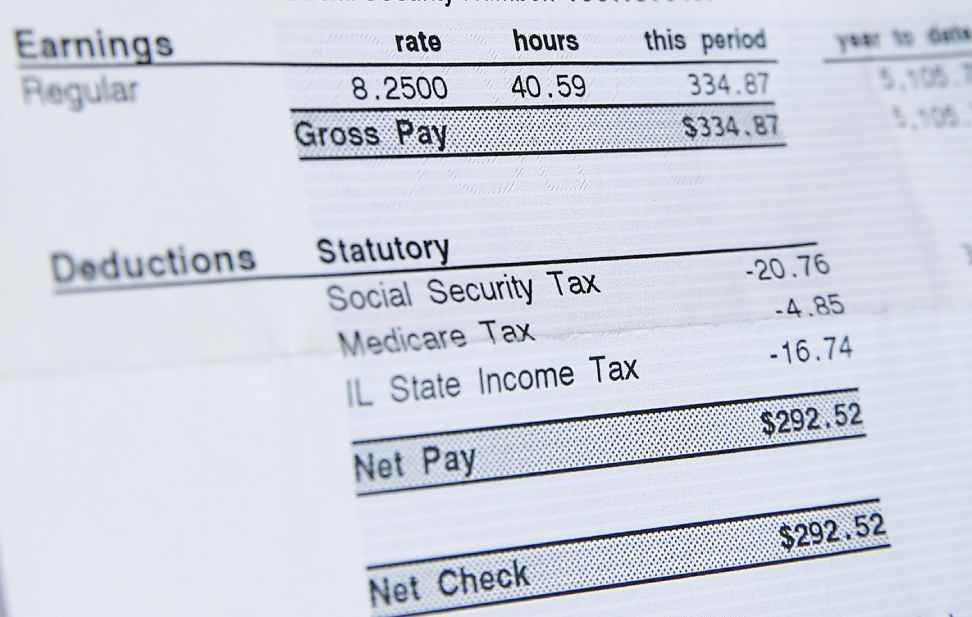Understanding the deductions on your paycheck stub is crucial for managing your finances effectively. A paycheck stub, also known as a pay stub or earnings statement, provides detailed information about your earnings and deductions for a specific pay period. It serves as a valuable tool for tracking your income and ensuring accurate compensation.
Gross Pay vs. Net Pay
Gross Pay:
Your gross pay refers to the total amount of money you earn before any deductions are taken out. It includes your hourly wages or salary, as well as any bonuses or commissions you may have earned during the pay period.
Net Pay:
On the other hand, net pay, also known as take-home pay, is the amount you receive after deductions have been subtracted from your gross pay. It represents the actual amount of money you take home after taxes and other deductions have been withheld.
Understanding Deductions
Deductions on your paystub generator free encompass various expenses and contributions that are deducted from your gross pay before you receive your net pay. These deductions can include federal and state income taxes, Social Security and Medicare taxes, health insurance premiums, retirement contributions, and other voluntary deductions such as union dues or charitable contributions.
Federal Income Tax
Federal income tax is a mandatory deduction that is withheld from your paycheck by your employer and remitted to the federal government. The amount of federal income tax withheld depends on factors such as your filing status, income level, and the number of allowances you claim on your W-4 form.
State Income Tax
In addition to federal income tax, many states also impose a state income tax, which is withheld from your paycheck based on the state’s tax rates and regulations. The amount of state income tax withheld may vary depending on where you live and work.
Social Security and Medicare Taxes
Social Security and Medicare taxes, collectively known as FICA taxes, are deductions that fund these federal programs. Social Security taxes are withheld at a flat rate up to a certain income threshold, while Medicare taxes are withheld at a separate rate.
Health Insurance Premiums
If you participate in an employer-sponsored health insurance plan, your health insurance premiums may be deducted from your paycheck. These deductions help cover the cost of your health insurance coverage and may vary depending on the level of coverage you choose.
Retirement Contributions
Many employers offer retirement plans such as 401(k) or 403(b) plans, which allow employees to contribute a portion of their earnings towards retirement savings on a pre-tax basis. These contributions are deducted from your paycheck and invested in your retirement account for future use.
Other Deductions
In addition to the aforementioned deductions, your paycheck stub may also include other voluntary deductions such as contributions to flexible spending accounts, union dues, or charitable donations. While these deductions are optional, they can help you save money or support causes you care about.
Reading Your Paycheck Stub
To effectively manage your finances, it’s essential to understand how to read your real pay stub. Key sections to review include your gross earnings, deductions, and net pay, as well as any year-to-date figures that provide a summary of your earnings and deductions for the year.
Importance of Regularly Reviewing Paycheck Stubs
Regularly reviewing your paycheck stubs can help you identify any errors or discrepancies in your earnings or deductions. By comparing your paycheck stubs to your records and reporting any discrepancies to your employer, you can ensure accurate compensation and avoid financial losses.
Tips for Maximizing Take-Home Pay
To maximize your take-home pay, consider strategies such as adjusting your tax withholdings, contributing to tax-advantaged retirement accounts, and taking advantage of pre-tax benefits such as flexible spending accounts or commuter benefits.
Common Pitfalls to Avoid
Be mindful of common pitfalls such as failing to update your tax withholdings after significant life changes, overlooking errors or discrepancies on your paycheck stubs, or failing to review your benefits and deductions regularly. By staying vigilant and proactive, you can avoid costly mistakes and ensure your financial well-being.
Staying Informed about Changes
Tax laws and regulations are subject to change, so it’s essential to stay informed about any updates or revisions that may affect your paycheck deductions. Consider consulting with a tax professional or financial advisor to stay up-to-date with changes and ensure compliance with applicable laws and regulations.
Conclusion
Understanding the deductions on your paycheck stub is essential for managing your finances and maximizing your take-home pay. By familiarizing yourself with the various deductions, regularly reviewing your paycheck stubs, and staying informed about changes, you can ensure accurate compensation and financial stability.
FAQs
Why is it important to review my paycheck stub regularly?
Regularly reviewing your paycheck stubs allows you to identify any errors or discrepancies in your earnings or deductions, ensuring accurate compensation.
What should I do if I notice an error on my paycheck stub?
If you identify an error on your paycheck stub, report it to your employer immediately to rectify the issue and ensure accurate compensation.
Have A Look : –

